2018, Berthoud, Colorado, USA
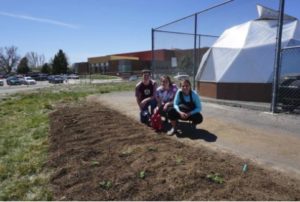
Meghan Lucero, Riley Lundgreen, Kelden Cook, Berthoud High School
Erosion and invasive species can be harmful to a watershed because it can destroy soil and use large amounts of water.
In Colorado, Canadian Thistle and Russian Olive can completely replace a natural species. Bees can help these problems as they help pollinate native species which decreases the invasive species in the area.
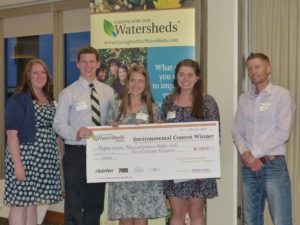
Their project was to create a bee garden that would help increase the population of bees near their school. Meghan, Riley and Kelden created a 20×8 foot garden behind their school in Berthoud that contained perennial bee friendly plants. The resulting garden should increase the bee population in the area while increasing native plants.
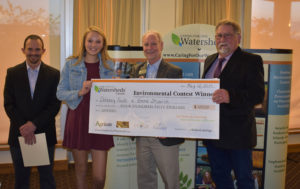
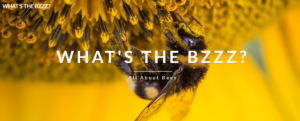 answers to the questions are recorded and a final report is give at the end of the game. Players can then use this score to identify how they can better help the bees in the watershed. The game can be found at:
answers to the questions are recorded and a final report is give at the end of the game. Players can then use this score to identify how they can better help the bees in the watershed. The game can be found at: 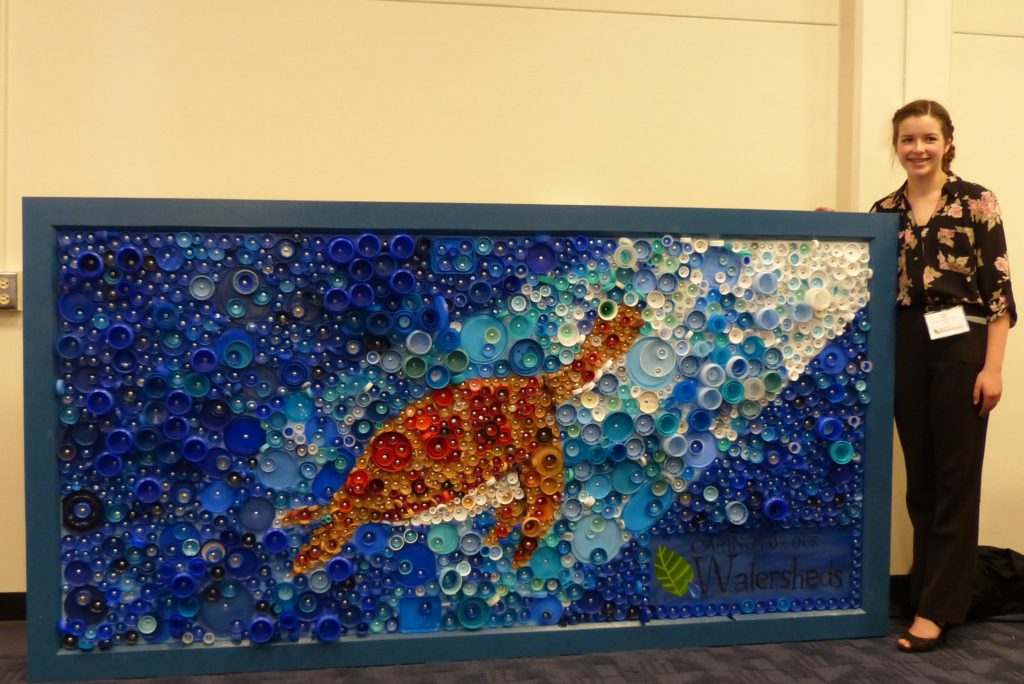
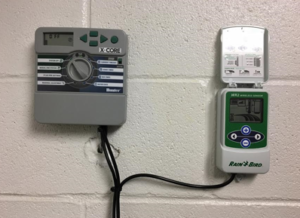 2017, Milliken, Colorado, USA
2017, Milliken, Colorado, USA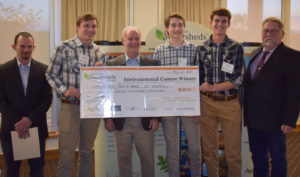 n and budget focused as well. The students worked with the school district and installed three WR2 rain gauge sensors which have reduced water usage by 30-50%. They will be monitoring the water usage during 2017-2018 and reporting back to the school administration.
n and budget focused as well. The students worked with the school district and installed three WR2 rain gauge sensors which have reduced water usage by 30-50%. They will be monitoring the water usage during 2017-2018 and reporting back to the school administration.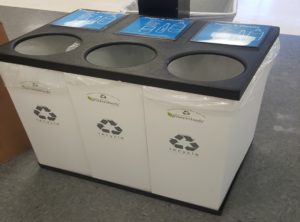
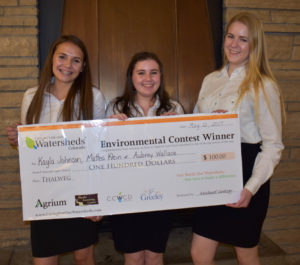 throughout the high traffic areas of the school. The materials from the new recycling bins are being collected by Waste Management. The company already has a recycling contract with the school, so it did not increase the overall expenditure for the district.
throughout the high traffic areas of the school. The materials from the new recycling bins are being collected by Waste Management. The company already has a recycling contract with the school, so it did not increase the overall expenditure for the district.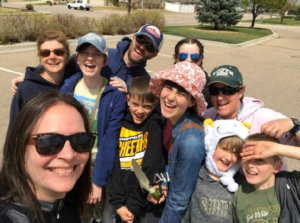 2017, Greeley, Colorado, USA
2017, Greeley, Colorado, USA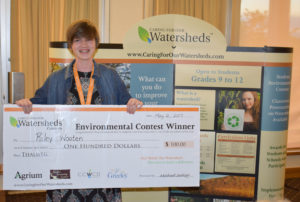 Milkweed, Palmer Penstemon, Butterfly Milkweed, White Clover, Purple Coneflower, Mexican Hat, Yellow Coxie Flower, White Yarrow, and Black-Eyed Susan. In April, Riley organized a group of volunteers to clean the area, sow the seeds and install the insect boxes.
Milkweed, Palmer Penstemon, Butterfly Milkweed, White Clover, Purple Coneflower, Mexican Hat, Yellow Coxie Flower, White Yarrow, and Black-Eyed Susan. In April, Riley organized a group of volunteers to clean the area, sow the seeds and install the insect boxes.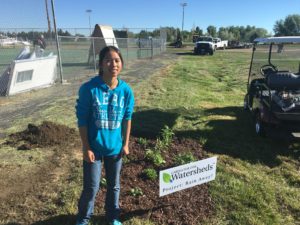 2017 Berthoud, Colorado, USA
2017 Berthoud, Colorado, USA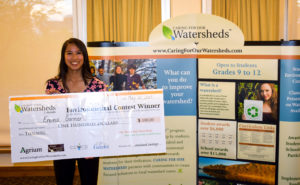 contaminates that are deposited there from the parking lot. Although the rain garden is a small site test, it can be expanded in the future by the school.
contaminates that are deposited there from the parking lot. Although the rain garden is a small site test, it can be expanded in the future by the school.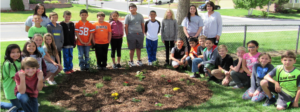 2017 Greeley, Colorado, USA
2017 Greeley, Colorado, USA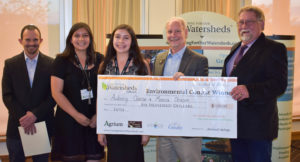 pollinators have on our environment then helped each group create a garden. Each garden included flowers that attract butterflies, bees, and hummingbirds. They created gardens at four schools and three churches around Northern Colorado. In addition, Monica and Aubrey distributed garden designs and seeds to each person so they could create their own gardens at their homes.
pollinators have on our environment then helped each group create a garden. Each garden included flowers that attract butterflies, bees, and hummingbirds. They created gardens at four schools and three churches around Northern Colorado. In addition, Monica and Aubrey distributed garden designs and seeds to each person so they could create their own gardens at their homes.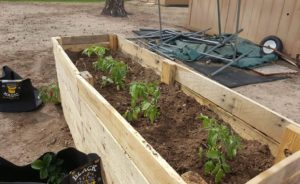
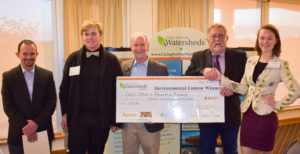 processing industry (reducing the carbon footprint of food packaging, waste, and transportation). Once the school gardens begin to produce, they will donate the vegetables to the students who participated in creating the garden. In addition, they will sell the produce to the school lunch program through the Garden to School program. The money generated will be used to fund the upkeep and future development of the garden.
processing industry (reducing the carbon footprint of food packaging, waste, and transportation). Once the school gardens begin to produce, they will donate the vegetables to the students who participated in creating the garden. In addition, they will sell the produce to the school lunch program through the Garden to School program. The money generated will be used to fund the upkeep and future development of the garden.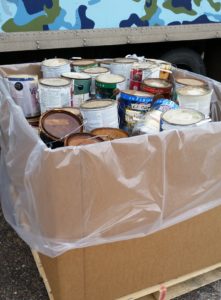 2017, Milliken, Colorado, USA
2017, Milliken, Colorado, USA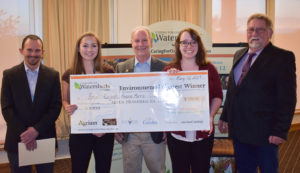 1300 pounds of paint, stain and finishes. The water-based paint is remixed to create 16 new colors and the non-paint items were sent to the hazardous waste disposal site
1300 pounds of paint, stain and finishes. The water-based paint is remixed to create 16 new colors and the non-paint items were sent to the hazardous waste disposal site